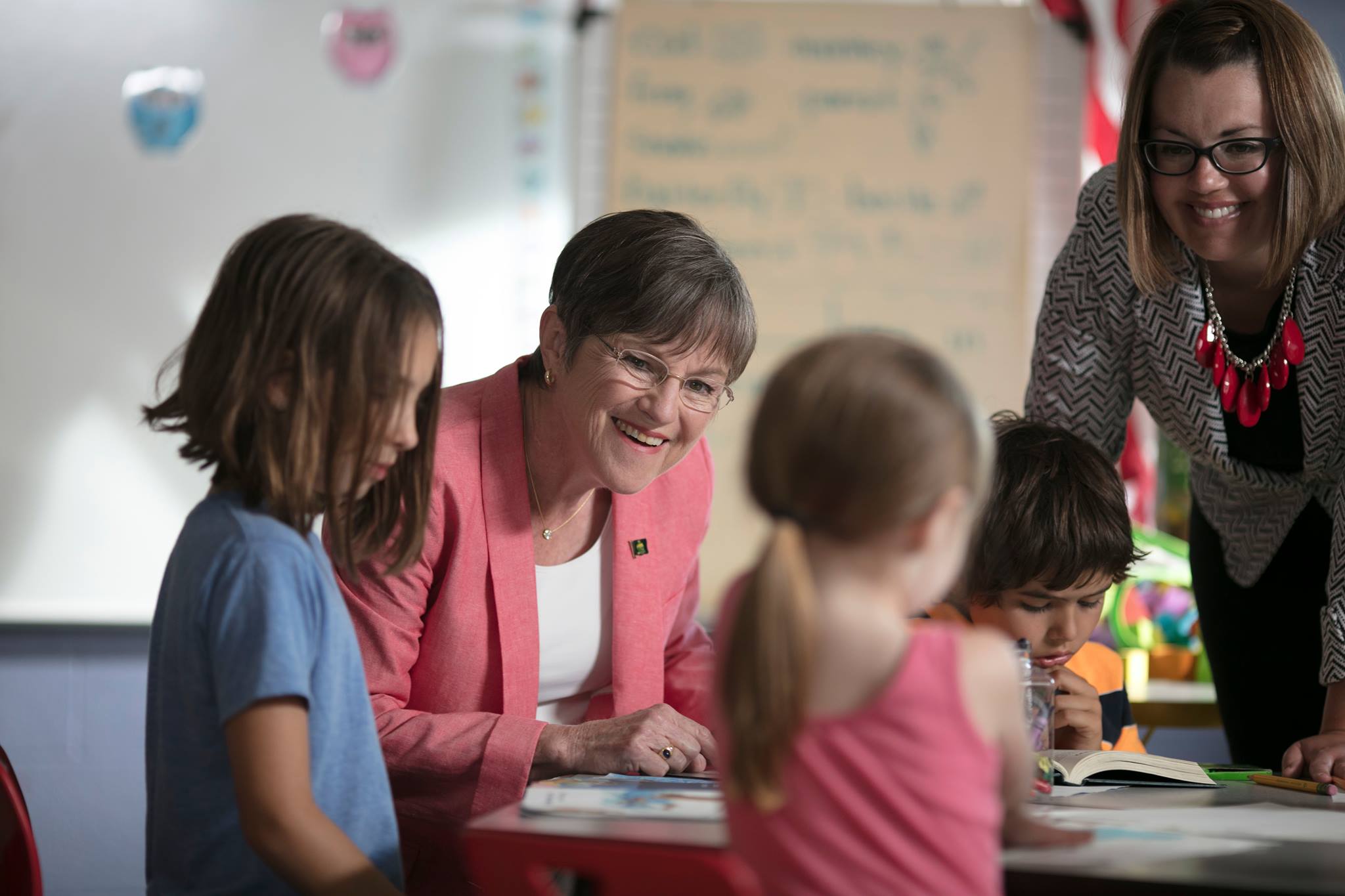
Washington, D.C., Oct. 7 – RespectAbility, a nonprofit organization fighting stigmas and advancing opportunities for people with disabilities, has asked gubernatorial candidates on all sides of the aisle to fill out a questionnaire on disability issues.
Laura Kelly, a Democratic candidate and current Senate Minority Whip for the Kansas Senate, is the first gubernatorial candidate in Kansas to complete the full 2018 #PwDsVote Disability Campaign Questionnaire.
RespectAbility is nonpartisan and does not endorse candidates. The questionnaire is purely for educational purposes.
This is important for Kansas’ 371,000 citizens with disabilities. Only 45 percent of the 180,800 working-age people with disabilities in Kansas are employed. Further, there are more than 38,000 youth with disabilities and each year a quarter of them will age out of school into an uncertain future.
According to a recent survey, 74 percent of likely voters have a disability themselves or have a family member or a close friend with disabilities. The upcoming elections and their results will have an impact on people with disabilities, so it is important to become familiar with the candidates’ thoughts on certain issues.
“Candidates for office ignore the disability community at their peril,” said former U.S. Representative and Dallas Mayor Steve Bartlett. Bartlett, who was a primary author of the Americans With Disabilities Act of 1990, is the chairman of RespectAbility.
RespectAbility is seeking answers from the campaign of Republican Kris Kobach, current Kansas Secretary of State, who also is seeking the governorship in Kansas.
We are presenting Kelly’s answers in full below.
Question 1: What policies and actions do you support to reduce the stigmas of people with disabilities that are barriers to employment, independence and equality?
Answer: I’m running for governor so that every Kansan – no matter who they are or where they live – can have the same opportunities to succeed. That will mean reducing the stigma against people with disabilities and ensuring they have the tools needed to be productive members of the workforce. As governor, I will continue to fight for equality for all and reduce misconceptions about people with disabilities to they can gain employment and independence.
Question 2: What is your record on improving the lives of people with disabilities, specifically in enabling people with disabilities to have jobs, careers or start their own businesses?
Answer: I have been a longtime supporter early child education programs that put kids on the path of success early on and keep them there and identify any problems a child may be having early on. In 2009, I pushed for the creation and funding of the Early Childhood Block Grants to ensure that more kids enter kindergarten ready to learn. In addition, I have supported job training programs to ensure that we are helping students prepare for the jobs of the future.
In addition, I serve on the KanCare oversight committee, working to make sure our healthcare system is working for all Kansans, especially those with disabilities.
Question 3: Do you have specific strategies for youth employment for people with disabilities? For example, what are your thoughts on apprenticeships for youth with disabilities?
Answer: I am supportive of apprenticeships for youth with disabilities. I also support investing in job training programs. They provide great opportunities to learn important job skills that they can take with them into their careers.
Question 4: The jobs of the future will largely require post-secondary education. However, on average only 65 percent of students with disabilities complete high school and only seven percent complete college. What policies do you support to enable students with disabilities, including those from historically marginalized communities and backgrounds, to receive the diagnosis, Individualized Education Plan (IEP) or 504 plan and accommodations/services they need to succeed in school and be prepared for competitive employment?
Answer: One of my proudest accomplishments in the legislature was securing critical support for early childhood education programs. In 2009, I pushed for the creation and funding of the Early Childhood Block Grants to ensure that more kids enter kindergarten ready to learn. These programs help kids develop at an early age, identify any challenges they may face, and impact their families for the better. Just this year, I secured additional funding be added to the budget to support early childhood programs across the state.
We know the significant impact early investment can have on kids going into kindergarten and the difference it can make in the years to come. I also support additional funding for our public schools to make sure we have the social workers, psychologist and support staff available to better assist and serve children with disabilities. When I am governor, Kansas will invest more in programs like this that benefit our children and put them on the path to success so they can go on to high school, higher education, and eventually the workforce.
Question 5: Today there are more than 750,000 people with disabilities behind bars in our nation. Most of them are functionally illiterate and 95 percent of them will eventually be released. What are your views to ensure that individuals with disabilities who are incarcerated gain the skills and mental health supports that will enable them to be successful when they leave incarceration?
Answer: Mental health has been front and center of my entire career. My first job was at a correctional facility for boys, and I continued my career working with children suffering from mental illness. Throughout my time in the Senate, I have been committed to improving access to quality mental health care in schools and through community health offices. It is something that impacts so many Kansans. And – if not addressed – can end lives or ruin families.
It’s essential that we increase mental health services available to Kansans. I support connecting community mental health centers with correctional facilities to ensure individuals with disabilities have access to these resources and are able to reintegrate into society once they leave incarceration. I also will work with community corrections to provide skills training to help people reintegrate into our communities. As governor, I will also focus on improving access to mental healthcare for all our citizens by partnering with community health centers and speaking publicly to reduce the stigma associated with mental illness and disabilities.
Question 6: People with disabilities are twice as likely to be victims of crime as those without disabilities. This includes the fact that both children and adults with disabilities are more likely to be victims of rape or sexual assault. They are also far more likely to suffer from police violence, partially because manifestations of disability can be misunderstood. How would you address these issues?
Answer: This is a serious issue and one that unfortunately is all too common. We need to examine our police practices and equip law enforcement officials with the proper tools and resources needed to interact with people with disabilities, while also keeping themselves safe.
This is why, for example, in 2017 I supported Joey’s Law. It assists police officers in identifying persons who need cognition assistance, such as autism and other developmental disabilities, by issuing placards to be displayed on vehicles as well as driver’s licenses or ID cards.
Question 7: How would you ensure that people with disabilities have access to healthcare and the benefits they need while enabling them with opportunities to work to the best of their capacities without losing the supports they need to live?
Answer: One of my top priorities as governor will be to expand Medicaid to ensure that all Kansans have access to affordable healthcare that meets their needs. This will cover 150,000 additional Kansans and make generate thousands of jobs in the process.
Question 8: What are your thoughts on ensuring that people with disabilities have the option to live in their homes instead of institutions and still have the community attendant supports they need to live?
Answer: I support finding ways to ensure that people with disabilities have the option to live in their homes instead of institutions, while still having community support.
In 2017, I supported the budget, which included a 3% rate increase for providers of Home and Community Based Services for FY 2018 and 4% rate increase for FY 2019. These providers help individuals with disabilities to live at home.
Question 9: How would you advance innovations (i.e., assistive technologies, devices) that can help people with disabilities become more successfully employed, productive and independent?
Answer: By investing in job training and workforce development programs, we can ensure that our business community has the employees they need to advance innovations to help people with disabilities. We also must continue to support our research institutions as they continue to look for ways to advance technology in this area.
Question 10: Are your office, website and events accessible to people with disabilities? If yes, please describe.
Answer: Our office is accessible to people with disabilities and we strive to make sure our events and website are as well.
RespectAbility has asked all the candidates for governor on both sides of the aisle to complete the same questionnaire. We will share responses from additional campaigns as we receive them.
The RespectAbility Report is a nonpartisan political commentary on U.S. elections with a focus on disability issues. The RespectAbility Report first posed this down ballot questionnaire to candidates in 2016 while covering all of the 2016 Democratic and Republican candidates for president. Coverage of this and related issues can be found at http://therespectabilityreport.org/.
The RespectAbility Report is nonpartisan and does not endorse candidates.

Be First to Comment